A U T E N T I S T A S L O V A K I A

On January 14, 2014, together with colleagues from the family-run winery of Mátyás and Strekov 1075, we were the founding members of the Citizen’s Association called Autentista Slovakia.
The charter and charter of authenticators was signed on January 14, 2014 in the presence of natural winemakers from Slovakia and abroad.

CHARTER OF THE AUTHENTIST
– P R E A M B L E –
We Authentists hereby subscribe to the legacy of our ancestors, who lived on these lands and farmed them for thousands of years, growing grapes and making wine to delight the spirit and celebrate God’s goodness. As their descendants, we want to use our native land to produce wines of consistent quality, so we can preserve this land and pass it on to our children healthy and beautiful.
We consider Pannonia, once part of the Roman Empire, to be the birthplace of our common wine growing culture. It was the Romans who lay the foundation of the laws that winemakers had to abide by, as well as the methods of wine production used by all the different wine-loving nations living between the Alps and Carpathians today.
As the passing of time became history, the community of the Central European nations was formed; and in good times and bad, through pain and joy, it survived to this day. The common spirit, as well as traditions and values shared by the peoples of the former Austro-Hungarian Empire, was also the framework for wine and the traditions of its making. Today our history allows us to follow up on everything that people have created on this journey, through traditional winemaking, and the production of nature friendly, authentic wines.
The often too sudden transition from traditional viticulture and viniculture to modern procedures can overshadow, even destroy local vineyards and winery specificities, leading to the loss of identity for the wine growers. There was a knock-on effect in the style of wine produced as the old sloping vineyard plots were abandoned, resulting not only in the loss of authenticity, but in overgrown, unattractive hillsides where the vineyards had for centuries represented the genius loci of the landscape.
We unite here, in order to maintain an authentic viticulture and viniculture in the Danube region, sculpted by the 2,840 km long river. This region has always been a crossroads, not only of peoples, but also of the “Pontus” and the Western European grape varieties. This is where our solidarity and common spirit had been created; and where the indigenous grape varieties that unite and symbolize us have originated.
We recognize the importance of retaining both our individual and the shared identity, and we value the co-operation with wineries and regions that share our views and agree with the Charter of the Authentist.
CHARTER OF THE AUTHENTIST

– B I N D I N G R U L E S –
A . R u l e s f o r w o r k i n t h e v i n e y a r d
Choose practices of organic and sustainable agriculture throughout the grape cultivation process, to preserve long-term fertility and biological activity in the soil, as well as biodiversity and wildlife in the vineyard.
- Don’t use any herbicides, synthetic insecticides, miticides or fungicides; only agricultural products approved for organic viticulture.
- Don’t apply any synthetic fertilizers.
- Plant and cultivate indigenous grape varieties, or ones that allow for the implementation of the aforementioned values and procedures.
- Plant minimum 5,000 new grape samplings per hectare.
- The maximum yield from one hectare of vineyard should be no more than 40 hl of wine.
- Only manual grape harvesting is permitted.
B . R u l e s f o r w o r k i n t h e c e l l a r
Uphold the principles of minimal interference during the production of wine, and favour biological, physical and mechanical processes to those that use chemicals. Working in the wine cellar, the priority is to protect the environment and minimize energy consumption and waste.
- Don’t use genetically modified organisms, or additives containing any genetically modified components.
- Don’t use commercial or imported yeasts. Musts should be fermented spontaneously, using indigenous yeasts and bacteria present in the grapes and the cellar environment.
- Don’t use any artificial products or additives such as artificial yeast nutrition, bacteria or enzymes. Only sulphur dioxide, bentonite and fresh egg white are allowed during the winemaking process.
- Only self-clearing of musts is allowed (i.e. the use of spontaneous sedimentation)
- Filtration, flotation, centrifugation, reverse osmosis, freeze-drying and vacuum distillation of grape musts are technological processes and procedures incompatible with the Charter of the Authentist.
- Adjustments of acids and sugar levels in the grape must, or the adding of concentrated must or water is prohibited.
- The fermentation and aging process is preferred in wood, ceramic, glass or concrete containers, without trying to control the fermentation process.
- The maximum content of Sulphur Dioxide (SO2) should not exceed 80 mg per litre in dry white wines, and 60 mg per litre in red wines.
- Any intervention distorting the character of the wine is prohibited. These include filtration, pasteurisation, adding carbon dioxide, tannins and stabilizers, and altering the alcohol levels or bouquet.
- Membrane and cross-flow filtration, pasteurisation, reverse osmosis, and vacuum evaporation are all technological processes within wine production that are incompatible with the Charter of the Authentist.
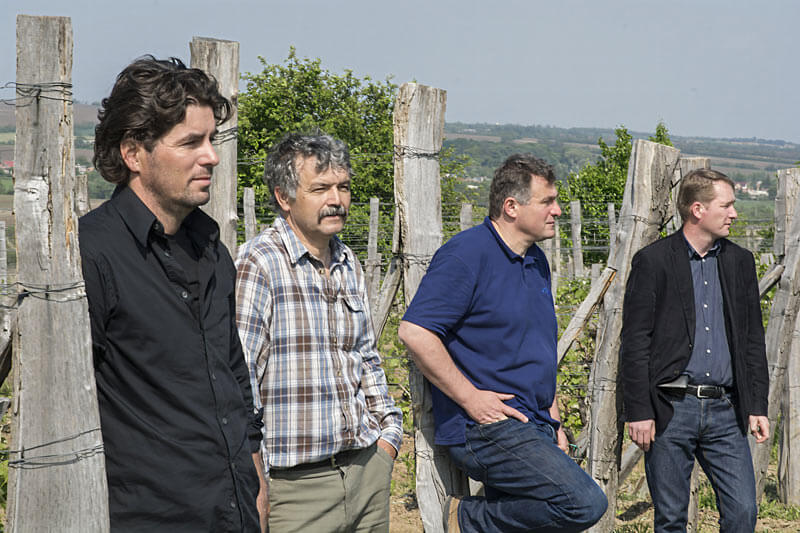
O n t h e b a s i s o f t h i s s y s t e m o f v a l u e s a n d o u r p h i l o s o p h i c a l i n t e n t , o u r o b j e c t i v e s a r e a s f o l l o w s :
- Produce wines from our own vineyards with the help of autochthonous microorganisms to best reflect the spirit of the place, captured individually by the hand of the sensitive winemaker.
- Favour the traditional vineyard locations and organic farming practices.
- Preserve and protect the microflora of vineyards and cellars.
- Prefer Central European grape varieties and the use of wooden barrels.
- Don’t manipulate the weather conditions during each vintage; accept them as nature intended.
- Endorse those practices in the cultivation of vines and winemaking that have been proven for centuries.
- Promote nature-friendly, authentic wines produced in accordance with the Charter of the Authentist.
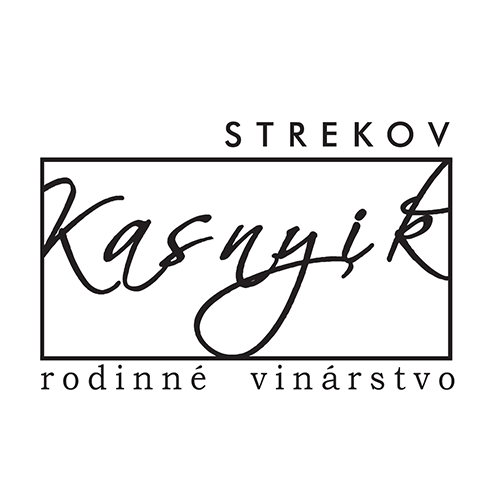
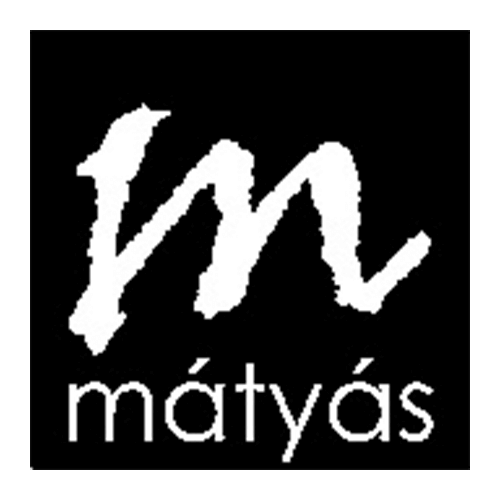
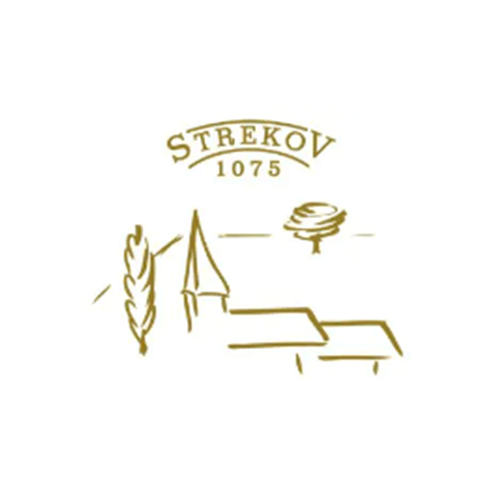
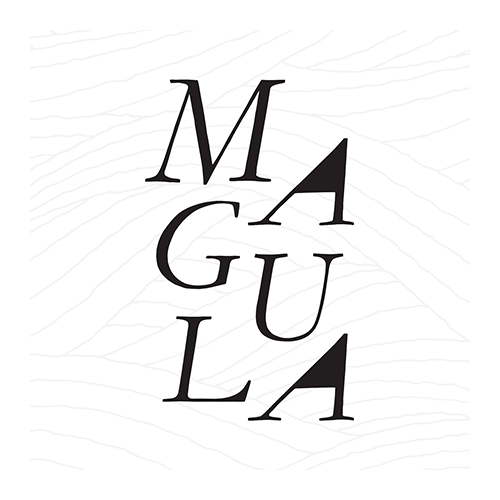
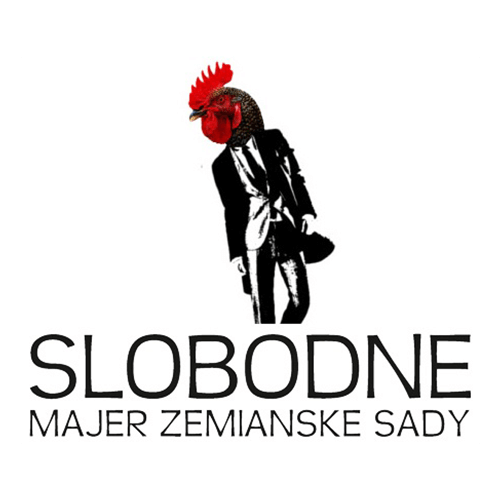

Awards
O c e n e n á k v a l i t a z n a š e j p r o d u k c i e







